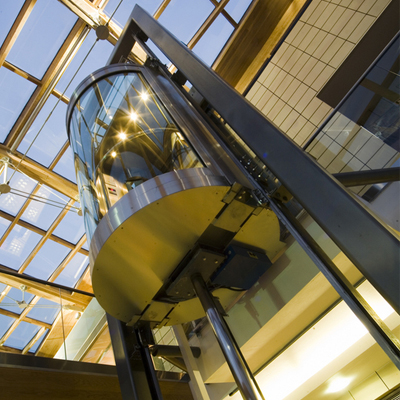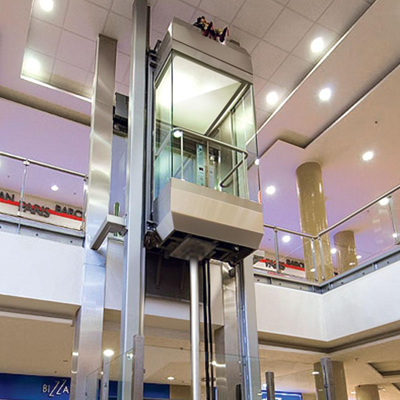

Hydraulic elevators are a reliable and time-tested vertical transportation solution, known for their robust and straightforward design. These elevators operate on the principle of fluid mechanics, utilizing hydraulic fluid, typically oil, to move the elevator car. A hydraulic pump pushes the fluid into a piston, which then lifts the elevator car. When the fluid is released from the piston, the elevator descends smoothly. This hydraulic system offers a simple and effective way to transport passengers or goods between floors. One of the notable advantages of hydraulic elevators is their suitability for low- to mid-rise buildings. They are especially well-suited for structures where the travel distance is relatively short and the building's height doesn't justify the installation of a more complex traction elevator system. Hydraulic elevators also require less overhead space, as they don't need a counterweight like their traction counterparts. This makes them a practical choice for buildings with height constraints.
Additionally, hydraulic elevators are known for their reliability and ease of maintenance. They have fewer mechanical components compared to traction elevators, resulting in reduced wear and tear and lower maintenance costs. Their robust design and ability to operate even during power outages with the assistance of backup power systems make hydraulic elevators a dependable choice in various settings, including commercial buildings, residential complexes, and industrial facilities. While they may not offer the same speed and energy efficiency as traction elevators, hydraulic elevators remain a trusted and cost-effective vertical transportation solution for buildings with specific needs.